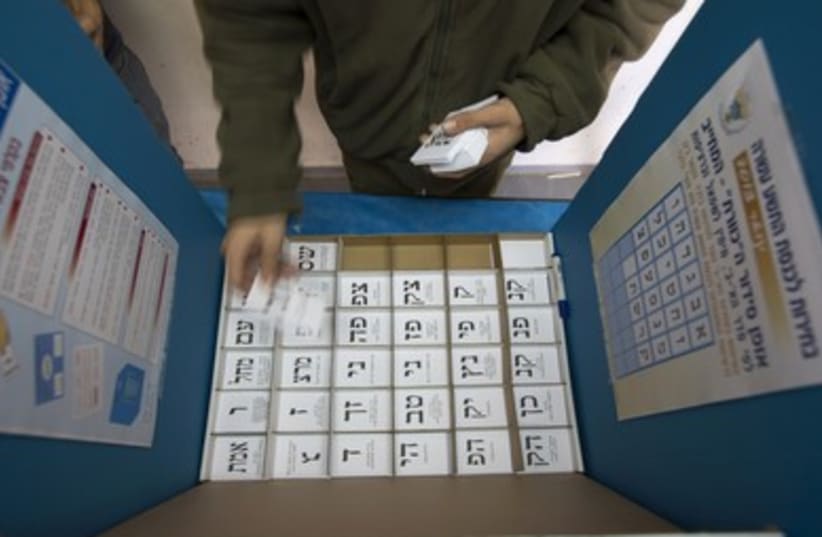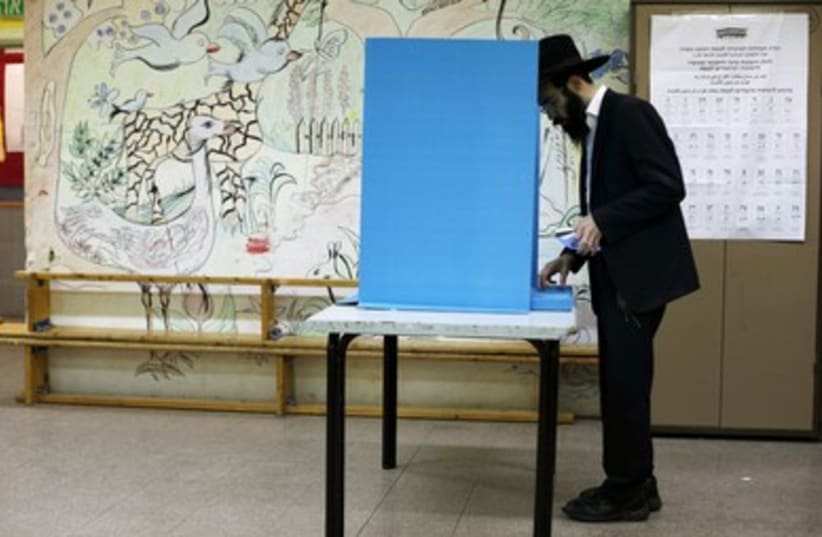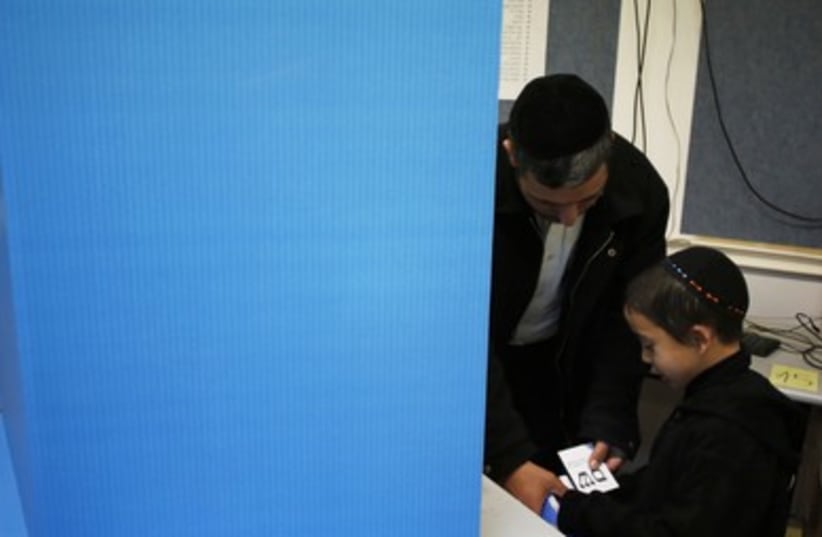




Everyone said New England – with one of the best quarterbacks ever to step foot on a gridiron, and one of the best coaches ever to march up and down the sidelines – would win handily.New England had the poise, the experience, the skill. They even had the home field advantage.And then New England lost.Were Shelly Yacimovich, or Yair Lapid, or even Tzipi Livni American football fans, they might look for encouragement from New England’s defeat, because it shows that the runaway favorite – the team with the tested and experienced leader – does not always win.“The Ravens are going to Super Bowl XLVII in New Orleans because they never stopped believing,” read half a sentence in a Sports Illustrated story on the game.How lovely, how fairy tale, how football. But that’s just it; it’s football.There’s an old, tired American football expression that goes like this: “On any given Sunday, any team can beat any other.”And, indeed, that’s true in football. But is football a metaphor for elections; are sports an allegory for these elections? Fat chance.For all intents and purposes, Prime Minister Binyamin Netanyahu, aiming for his third term, put away this particular election game at halftime, when he teamed up with Yisrael Beytenu to form Likud Beytenu.Sure, he lost seats, and his joint list – at least according to the polls – will not come close to the 42 seats (27 for Likud and 15 for Yisrael Beytenu) that it enjoyed in the last Knesset.But Netanyahu and his strategists knew that going in. They knew from historic precedent that two parties never do as well when they merge as they do running on separate lists.Nevertheless, the merger ensured that barring almost a miracle, Likud Beytenu – even if it drops to 32 seats – will be the largest party, and the one that will be asked to form the coalition.That single move at the halftime of the campaign set the pulse, the tempo and the tone for the elections.Remember last time, four year ago? During those elections, Kadima beat Likud by one mandate, 28-27, and Livni’s political clumsiness is what enabled Netanyahu to form the government.As Makor Rishon’s Uri Elitzur wrote on Friday, had the current campaign begun with the polls showing Likud at 25 seats, and Labor at 20 or 21, the dynamics of the campaign would have been much different.“All the central players would have behaved altogether differently,” he wrote.“It is very doubtful if Tzipi Livni would have entered the game in that situation; [Avigdor] Liberman running a separate campaign would perhaps have winked at both sides; and one can assume that Arye Deri in a situation of near parity would not have pledged allegiance to the Likud three times a day before prayers. The whole campaign would have been run differently, and perhaps ended differently.”The campaign would have been more competitive, more issue-oriented, more serious. It would have mattered, because the gap between the top two parties would have been narrow and bridgeable. The Likud- Beytenu merger at halftime took care of all that.The campaign that ends today was the country’s most anemic in recent memory.Not because the stakes were not high – Iran, the Palestinians, relations with US President Barack Obama, the economy, Syria, Egypt – but because the results were a foregone conclusion.The elections that will be decided today are less about who will lead the country for the next four years, and more about who Netanyahu’s partners will be. And this has created a phenomenon that is very Israeli, and thoroughly un-American.One of the beauties of the American system is that when Americans go to vote for their president, they essentially have two choices. The US went to the polls last November with a clear choice: Obama or Mitt Romney. That’s it. The voters cast a ballot for who they thought would be better, or rather least bad.But they didn’t do mental gymnastics in the polling booth that if they vote for X, it will strengthen Y, by making sure he doesn’t have to pick Z for his cabinet. The American voters in the polling booths didn’t form – and block – governing coalitions in their heads.Not here. In these elections, because the end result is a foregone conclusion, the question is less about who will lead the country, and more about figuring out which vote will be the wisest tactically to strengthen those whom you want to strengthen, and weaken those whom you want to weaken. It’s not directly voting for who you want, but rather voting for someone who will trigger something else which is ultimately what you might be able to live with.For instance, vote for Bayit Yehudi’s Naftali Bennett to ensure that Netanyahu doesn’t take Livni into a coalition; or vote for Lapid to ensure Netanyahu doesn’t take Bennett into the government; or vote for Shas to make sure Netanyahu doesn’t pair up with Lapid.In short, kombinot – deals, connections, tricks, pacts.Who says our electoral system doesn’t represent our national character? •
